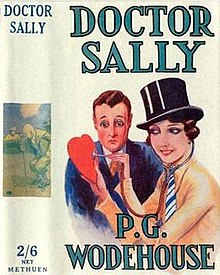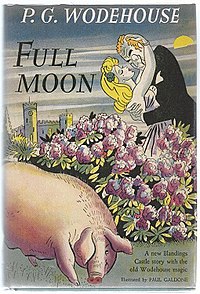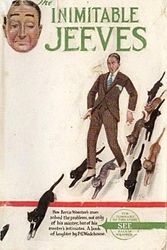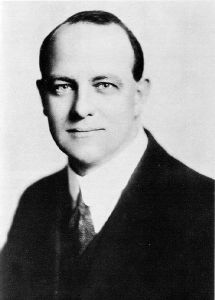Oh, Woman, Woman, I said to myself, not for the first time, feeling that the sooner that sex was suppressed, the better it would be for all of us.
(Bertie Wooster)
Jane Abbott
We run into her in Summer Moonshine. A girl of spirited nature, she is courageous herself and is an admirer of courage in others. She is fair minded and does not like reneging on her promises. She is a small, slim and pretty girl of twenty, with fair hair and a boyish jauntiness of carriage. Often, in her cornflower-blue eyes, there is a tender light which comes into the eyes of women when they are dealing with a refractory child or a misguided parent.
Her conscious but perplexed soul is torn between two love interests. The manner in which she goes about making up her mind is a quality for many of us to emulate. Analytics and mindfulness does not help her; a heartful approach to problem solving alone does.
Jill Mariner
We get introduced to her in Jill the Reckless. She is portrayed as a sweet-natured and wealthy young woman who, at the opening, is engaged to a knighted Member of Parliament, Sir Derek Underhill. Her journey through life is depicted as one through financial disaster, an adventure with a parrot, a policeman and the colourful proletariat, a broken engagement, an awkward stay with some grasping relatives, employment as a chorus girl, and the eventual finding of true love.
Lavender Briggs
Secretary to Lord Emsworth in Service With a Smile, Miss Briggs is a tall young girl, with a cold, haughty eye, harlequin glasses, and what her former employer Lord Tilbury describes as hair like seaweed. She becomes the bane of Emsworth’s life with her haughty efficiency. Requiring capital to start her own typing business, her schemes to acquire it by stealing the Empress gets her fired from her job, but her friendship with Uncle Fred sees her through.
Her character has hidden depths. If you happen to know of any teetotal bar, do please convey the details to her; she would much appreciate the kind gesture.
Whereas Lord Emsworth considers Miss Briggs to be worse than Rupert Baxter, Galahad Threepwood, as of Galahad at Blandings, believes that she may not have been as intolerable as Rupert Baxter, but she had come very close to achieving that difficult feat.
Rosie M Banks
Rosie M. Banks is a fictional romance novelist. A tall, lissome girl with soft, soulful brown eyes and a nice figure, she is devoted to her Pekingese dogs, owning as many as six at one time.
She is the author of works such as: All for Love; A Red, Red Summer Rose; Madcap Myrtle; Only a Factory Girl; The Courtship of Lord Strathmorlick; The Woman Who Braved All; Mervyn Keene, Clubman; ‘Twas Once in May; By Honour Bound; and A Kiss at Twilight. She also wrote the Christmas story “Tiny Fingers”.
According to Jeeves, her books make for a very light, attractive reading. But Bertie describes her writing as some of the most pronounced and widely-read tripe ever put on the market.
She is a fine husband-tamer. Bingo Little, who, in his bachelor days, kept coming under the spell of as many as six females, gets transformed into a highly devoted husband in his post-nuptials phase of life. When it comes to keeping his lady-love happy and contented, there is little that he leaves to chance. When his sporting spirits make him blow up a month’s allowance on an animal which refuses to live up to his expectations, he even takes up the onerous task of tutoring someone like Thos. He quietly bears the dietary deprivations and disparaging remarks in the presence of Laura Pyke, Rosie’s school chum.
Sally Nicholas
She is described as a small, trim, wisp of a girl with the tiniest hands and feet, the friendliest of smiles, and a dimple that comes and goes in the curve of her rounded chin. Her eyes are a bright hazel; her hair a soft mass of brown. She has an air of distinction and carried her youth like a banner.
A democratic girl, pomposity is a quality which she thoroughly dislikes, even if it is her brother who is the guilty party. She works in NY as a taxi dancer and vigorously pursues her theatrical ambitions. A role model, indeed, for business leaders and start-up founders of our times. (Adventures of Sally)
Dr Sally Smith
She is an American general practitioner in medicine, with abiding interest in golf. Her skills at the game impress even someone like the nerve specialist Sir Hugo Drake.
When Bill nervously confesses his feelings for her, he gets a rather unemotional response. Sally says she still has not met the right man. Sally continues to turn down Bill until she sees him do some paperwork for his dairy farm. Seeing that he does in fact work, she ends up falling for him.
She is described as a small girl and as being extremely pretty.
Sue Brown
A chorus girl, Sue is the daughter of Dolly Henderson. A tiny girl, mostly large eyes and a wide smile, she has a dancer’s figure and catches the eye of many a man, including Percy Pilbeam and in the past Monty Bodkin, to whom she was engaged for a spell, but when we first meet her in Summer Lightning, she has been fiancée to Ronnie Fish for some nine months.
Galahad Threepwood, who adored her mother in his youth, has a fatherly affection for her, and aids her considerably in her hopes of marrying Ronnie; although his sister Julia at one point accuses Gally of being her actual father, in fact Dolly Henderson married Jack Cotterleigh, an Irish Guardsman, while Gally was in South Africa. After her mother’s death, they moved to America for a time.
Veronica Wedge
The daughter of Lady Hermione and Colonel Wedge is a spectacularly attractive girl, a fact which never ceases to amaze her doting father and attracts many a fashion photographer whenever she appears in public. She has a direct way about her, and invariably follows her parents’ instructions to the letter, even when it comes to falling in love. Her extreme beauty is matched by her extreme simplicity of mind, a fact which does not put off Tipton Plimsoll when he meets her shortly before her twenty-third birthday, in Full Moon.
Tipton cashes in on her love for jewelry, eventually persuading her to elope to a registry office in the climax of Galahad at Blandings.
Of Female Empowerment
Staunch advocates of gender parity will be pleased to note that Wodehouse has created women characters which not only call the shots in their men’s lives but also pursue their own career interests with a single-minded devotion, alacrity and aplomb. They make a wide range of career choices and make a success of the same.
Of course, his men do make unkindly comments about women. But they also recognize women’s enablement of the human race going. In any case, Wodehouse is not like Nietzsche, who warns the better sort of reader not to venture out among the ladies without a stick or a whip. Some clans may drag their women about by the hair, but Wodehouse’s gentlemen are far too inhibited. So far from going after women with whips, they can’t even go back on incautious engagements—a man’s word is his bond, and it wouldn’t do for a preux chevalier to refuse an offer made by someone from the tribe of the delicately nurtured. Nor do they believe in bandying about the name of any woman. Even if they are aware that they happen to be merely a stop-gap arrangement in the scheme of things of someone like Bobby Wickham, who, by quoting their despicable candidature to their discerning parents, merely wish them to approve the alliance really intended. We end up realizing that Wodehouse agrees with Macbeth’s witches, at least when they say that fair may be foul: he presents men as sorely tried by the fair sex.
Even conscientious men, duly frocked in the service of the Lord, find that women are apt to bring them as close to the peril of being defrocked as would be humanely possible. Stiffy Byng tries to get her man to pinch a policeman’s helmet to even a private score.
Women are not like gentlemen, who have a code in these things:
She was fully aware that she was doing something which even by female standards was raw, but she didn’t care. The whole fact of the matter is that all this modern emancipation of women has resulted in their getting it up their noses and not giving a damn what they do.
A Unique Therapeutic Proposition
In a way, there is much in common between Wodehouse’s works and those of Jane Austen. Both happen to follow strict codes. Both play out as movies rated under the category ‘U’, thereby making them a family affair. Sex is taboo.
In Plumsville, friendly romps and jocular embraces are taken a jaundiced view of. Impersonation and white lies dished out in the course of a boat ride meet with approval; So do the pinching of umbrellas, policemen’s helmets, scarabs, silver cow creamers and such members of the animal kingdom as cats, dogs and pigs. Bunging in a policeman into a cooling stream is not scoffed at. One is forever living in a world which is essentially decent, uplifting and far away from the kind of trials and tribulations one faces in real life. Practical jokes do get played, albeit within limits.
Plum’s works happen to be an effective balm for a weary and wounded soul. Women of all kinds, irrespective of their Goofiness Quotient, contribute in no small measure towards building this unique therapeutic property of his works.
(Related Posts:
Different Shades of Women in Plumsville 2.0 (Aunts and Seniors)
https://ashokbhatia.wordpress.com/2014/04/12/different-shades-of-women-in-plumsville
https://ashokbhatia.wordpress.com/2014/10/30/of-bertie-goofy-females-and-the-wooster-clan
https://honoriaplum.com/2017/02/20/money-in-the-bank-review-by-john-lagrue























 This February’s Great Wodehouse romances series continues with another guest author, K.V.K. Murthy, known to Facebook friends as James Joyce. His piece takes us on a walk through romantic literary history with Psmith and Eve Halliday (
This February’s Great Wodehouse romances series continues with another guest author, K.V.K. Murthy, known to Facebook friends as James Joyce. His piece takes us on a walk through romantic literary history with Psmith and Eve Halliday (

